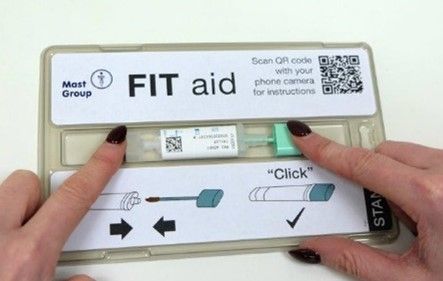
Equity starts with accessibility
- Health inequalities
- Person-centred care
- Lived experience
How health services should be provided on an equitable basis
There’s no shortage of words on NHS websites and in publications about how health services should be provided on a truly equitable basis.
Two of the key principles enshrined in the NHS Constitution are:
- The NHS provides a comprehensive service, available to all.
- The patient will be at the heart of everything the NHS does.
So the bad news first…
When it comes to the two million people in the UK living with sight loss, these words can ring hollow. An important safeguard for patients is the Accessible Information Standard (AIS). Introduced in 2016, the AIS is a law to make sure people who have a communication need due to a disability, impairment or sensory loss, receive information in a way they can use and understand; and that they receive support to communicate. Recent research has uncovered serious short-comings:
- Three quarters of people with accessible information needs said they rarely or never receive health information in alternative formats.
- Over one third (37 per cent) of healthcare professionals surveyed said they have never, or only once, received any training linked to the Accessible Information Standard, despite it being introduced in 2016.
Make Health Accessible
The Thomas Pocklington Trust’s (TPT) ‘Make Health Accessible’ campaign is working to remedy this situation, but are there many other areas of health and care that are not equitable?
In a word, yes.But we are tackling them one at a time. And now for some good news. NHS Health Screening is a way of identifying apparently healthy people who may have an increased risk of a particular condition. I’m pleased to say that we have made some significant headway in one area; Bowel Cancer Screening.
According to Bowel Cancer UK, nine out of 10 people will survive bowel cancer if detected in the earliest stages of the disease. There is a well-established screening service that involves a home-testing kit being sent to all adults when they become eligible between the ages 60 and 74. This is being expanded to include people aged 50 to 59. The faecal immunochemical test (FIT) requires an at-home stool sample in a tube, which is sent off and examined for any possible cancer signs.

However, blind and partially sighted people, as well as those with dexterity problems, find the existing kit very difficult to use. TPT have been working with the Royal National Institute of Blind People (RNIB), NHS England and The Mast Group on a more accessible kit called ‘FIT aid’ and here it is:
The adapted kit makes the original test more accessible in a number of ways to blind or partly sighted people, including braille instructions and a channel that enables the sample to be guided into a bottle. The tool is being piloted with about 500 people with sight loss across a six-month period. If successful, it will be introduced more widely.
This project demonstrates the effectiveness of cross sector working, between NHS England, a commercial manufacturer and the third sector. It shows that lived experience can, and should, be at the heart of decision making.
Further information
- TPT website, health page: https://www.pocklington.org.uk/health/equity-of-access-to-health-and-social-care-services/
- ‘Can I butt in’ podcast: https://canibuttin.podbean.com/e/003-visual-impairment-and-bowel-screening/